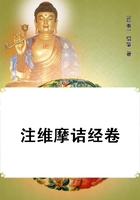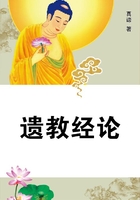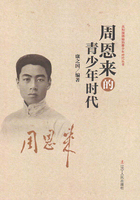I speak not now of what occurs in those first bitter days of grief, when the heart's wound bleeds afresh at every touch,--when we are continually surprised by the bleak fact that the loved one is actually dead.But I speak of those after seasons, those Indian summers of the soul, in which all the present desolation is blended with the bloom and enjoyment of the past.Then do we find that the tie which binds us so tenderly to the departed is a strong and fruitful one.We love, in those still retired seasons, to call up the images of the dead, to let them hover around us, as real, for the hour, as any living forms.We linger in that communion, with a pleasing melancholy.We call up all that was lovely in their character, all that was delightful in their earthly intercourse.They live again for us, and we for them.
In this relation of memory, moreover, we realize the fact, that while the departed were upon earth we enjoyed much with them.
This is a truth which in any estimate of our loss we should not overlook.do we mourn that the dead have been taken from us so soon? Are we not also thankful that they were ours so long? In our grief over unfulfilled expectation, do we cherish no gratitude for actual good? So much bliss has God mingled in our cup of existence that the might have withheld.He lent it to us thus far; why complain, rather, that he did not intrust us with it longer? O! these fond recollections, this concentrated happiness of past hours which we call up with tears, remind us that so much good we have actually experienced.
In close connection with this thought is the fact, that, by some delicate process of refinement, we remember of the dead only what was good.In the relation of memory we see them in their best manifestation, we live over the hours of our past intercourse.
Though in extraordinary instances it may be true that "the evil which men do lives after them," yet even in regard to the illustrious dead, their imperfections are overlooked, and more justice is done to their virtues than in their own time.Much more is this the case with those around whom our affections cling more closely.The communion of memory, far more than that of life, is unalloyed by sharp interruptions, or by any stain.That communion now, though saddened, is tender, and without reproach.
And even if we remember that while they lived our relations with them were all beautiful, shall we not believe that when they were taken away their earthly mission for us was fulfilled? Was not their departure as essential a work of the divine beneficence as their bestowal? Who knows but if they had overstayed the appointed hour, our relations with them might have changed?--some new element of discontent and unhappiness been introduced, which would have entirely altered the character of our recollections?
At least, to repeat what I have just suggested, what Christian doubts that their taking away--this change from living communion to the communion of memory--was for an end as wise and kind as were all the love and intercourse so long vouchsafed to us?
Vital, the, for the Christian, is this relation which we have with the dead by memory.We linger upon it, and find in it a strange and sweet attraction.and is not much of this because, though we may be unconscious of it, the current of faith subtilely intermingles with our grief, and gives its tone to our communion? We cannot consider the departed as lost to us forever.The suggestion of rupture holds a latent suggestion of reunion.The hues of memory are colored by the reflection of hope.Religion transforms the condition of the departed for us, and we consider them not as dead, but sleeping.
II.There is another relation which we have with the dead,--the relation of spiritual existence.We live with them, not only by communion with the past, by images of memory, but by that fine, mysterious bond which links us to all souls, and in which we live with them now and forever.The faith that has converted death into a sleep has also transformed the whole idea of life.
If the one is but a halt in the eternal march,--a slumbrous rest preceeding a new morning,--the other is but the flow of one continuous stream, mated awhile with the flesh, but far more intimately connected with all intelligences in the universe of God.What are the conditions of our communion with the living--those with whom we come in material contact? The eye, the lip, the hand, are but symbols, interpretations;--behind these it is only spirit that communes with spirit, even in the market or the street.But not to enter into so subtle a discussion, of what kind are some of the best communions which we have on earth? We take up some wise and virtuous book, and enter into the author's mind.Seas separate us from him,--he knows us not; he never hears our names.But have we not a close relation to him? Is there not a strong bond of spiritual communion between us? Nay, may not the intercourse we thus have with him be better and truer than any which we could have from actual contact,--from local acquaintance? Then, some icy barrier of etiquette might separate us,--some coldness of temperament upon his part,--some spleen or disease; we might be shocked by some temporary deformity; some little imperfection might betray itself.But here, in his book, which we read three thousand miles away from him, we receive his noblest thoughts,--his best spiritual revelations; and we know him, and commune with him most intimately, not through local but through spiritual affinities.
And how pleasing is the though that not even death interrupts this relation.Years, as well as miles--ages may separate us from the great and good man; but we hold with him still that living communion of the spirit.Our best life may flow to us from this communion.Some of our richest spiritual treasures have been deposited in this intercourse of thought.Some of our noblest hopes and resolutions have been animated by those whose lips have long since been sealed,--whose very monuments have crumbled.














